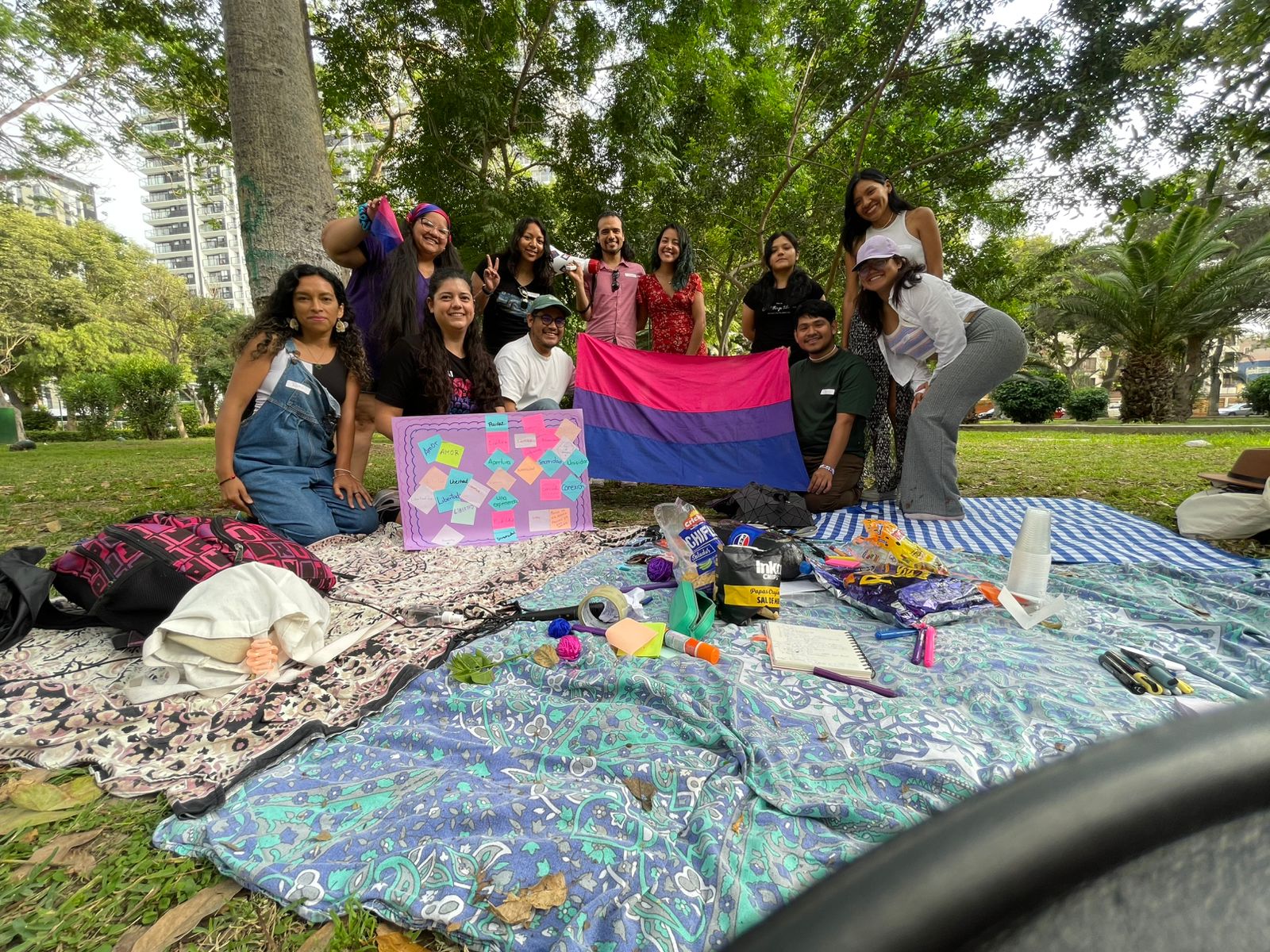By Pamela Vallejos Chavez
I have never been one or the other. I have always felt like a strange amalgamation of unique experiences that fit outside of rigid classifications. Having my psyche develop within liminality, in constant transit, never arriving at a “clear” destination forced me to grow and stand tall on unstable ground. Basically, what I mean is that I have never felt like I belonged and that anxiety is thoroughly woven into the fibers of my being. So, when I learned that bi+ people have concerning rates of mental health issues—anxiety, depression, substance abuse, suicidality—I was not only horrified by the data and the lack of visibility, I was horrified by how much I related to it, having identified as bi since I was 13 years old. While I know my mental health issues are not attributable solely to my sexuality, I also know it is not helpful to identify with a label that is so deeply misunderstood. It definitely wasn’t helpful to seek out safe spaces, only to realize that just a part of me was welcomed—and to never get the “I’ve found my people” moment that TV promised me as a queer person.
That is, until I did. And it was life-changing. I first felt a sense of community with other bi+ people through a WhatsApp group created right before the pandemic. It was a digital space where we could share memes, make stickers, share experiences, riff, and express pride in our identities, without fear of judgment, rejection, or being told we weren’t “queer enough.”
Eventually, a few of us from that group began organizing to practice more visible bi+ activism by creating in-person spaces for connection. This was in 2021, right as COVID restrictions were being lifted in Peru. We started organizing “bicnics” (bi picnics) because we knew that people were desperate for connection after such a long, devastating lockdown. In Peru, we experienced strict restrictions and one of the highest death rates. It was a traumatic and deeply painful time, so finding community within biosafety standards became essential.
After organizing these gatherings, I realized something: the invalidating thoughts I had grown used to—the ones that questioned whether I was really bi, whether I should just “choose a side”—began to dissipate. And eventually, they disappeared altogether. This made me realize that feeling in community was a strong opponent to my internalized biphobia. When I’m with others who share some of my experiences—not necessarily in the same way, or to the same extent, but with a shared recognition—I feel most in touch with my true self. And when I feel that connection, I no longer discriminate against myself. I can just be…bi.
This is why I fervently believe that community is the balm that soothes the internal ache that you cannot reach on your own. It provides what we crave as humans: connection. For some, community spaces can be the only place where they can feel connected to that part of who they are; for others it could be the only space where expressing that part of who they are is seen and treated as valid. Bi+ people, just as any queer person, crave safety. We seek places where we can feel like who we are is not wrong, a refuge from the society at large that constantly reminds us what they think of us. This is why it is so important to foster inclusive spaces whether it’s for the entirety of the queer community or identity-specific spaces. For bi+ people, it can be difficult to find these communal spaces because there is still a persistent idea that we are not the experts of our own experience, that we are in transition or a phase, that we are not enough, that we don’t exist.
Community is complex. It requires energy, care, effort, discomfort, and much more, but it is worth it, because it is what makes us human. A community is not a group of identical individuals, nor a space where everyone agrees on everything. It is a space where we share enough of the same pains, joys, and experiences that we can create something valuable: belonging. In a context that strives to separate us, this is not only precious, it is necessary for survival and resistance.
We are living through difficult times, globally (understatement). But I know we will get through it, because when have we lived through easy times? Queer people as a whole, as many other vulnerable communities, have had resilience thrust upon us, but that does not mean that we haven’t earned our strength. It is not fair, but we will persevere. And it will feel more bearable if we do it together.
Pamela Vallejos Chavez is a Peruvian American communications, gender, and diversity specialist, currently pursuing a Master’s in Gender Studies in Lima, Peru. She is the creator of Soy Bisexual, a digital platform dedicated to bi+ visibility and education, and co-leads Orgullo Bi, an initiative that builds bi+ community in Peru through monthly bicnics and ongoing advocacy.

